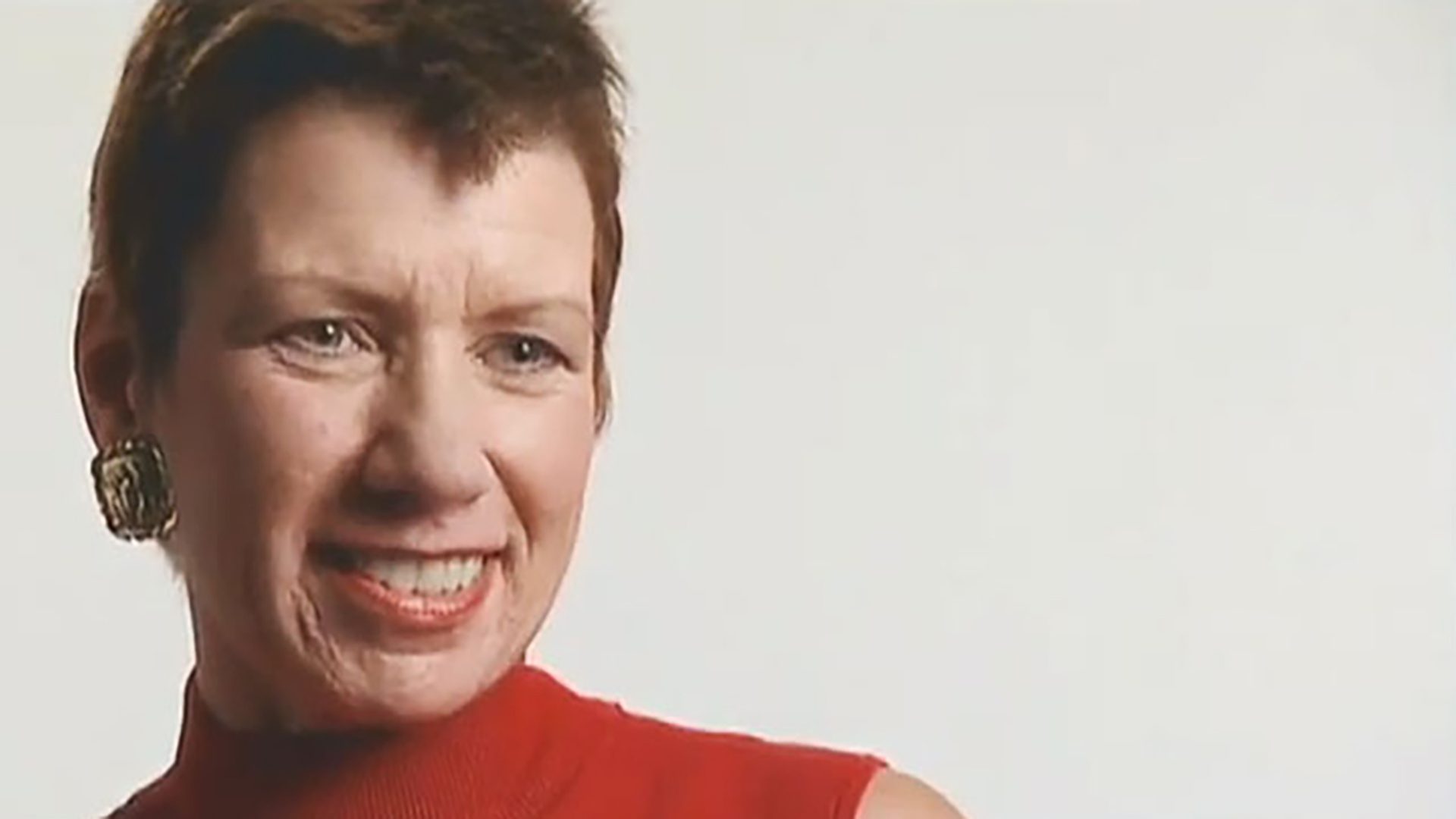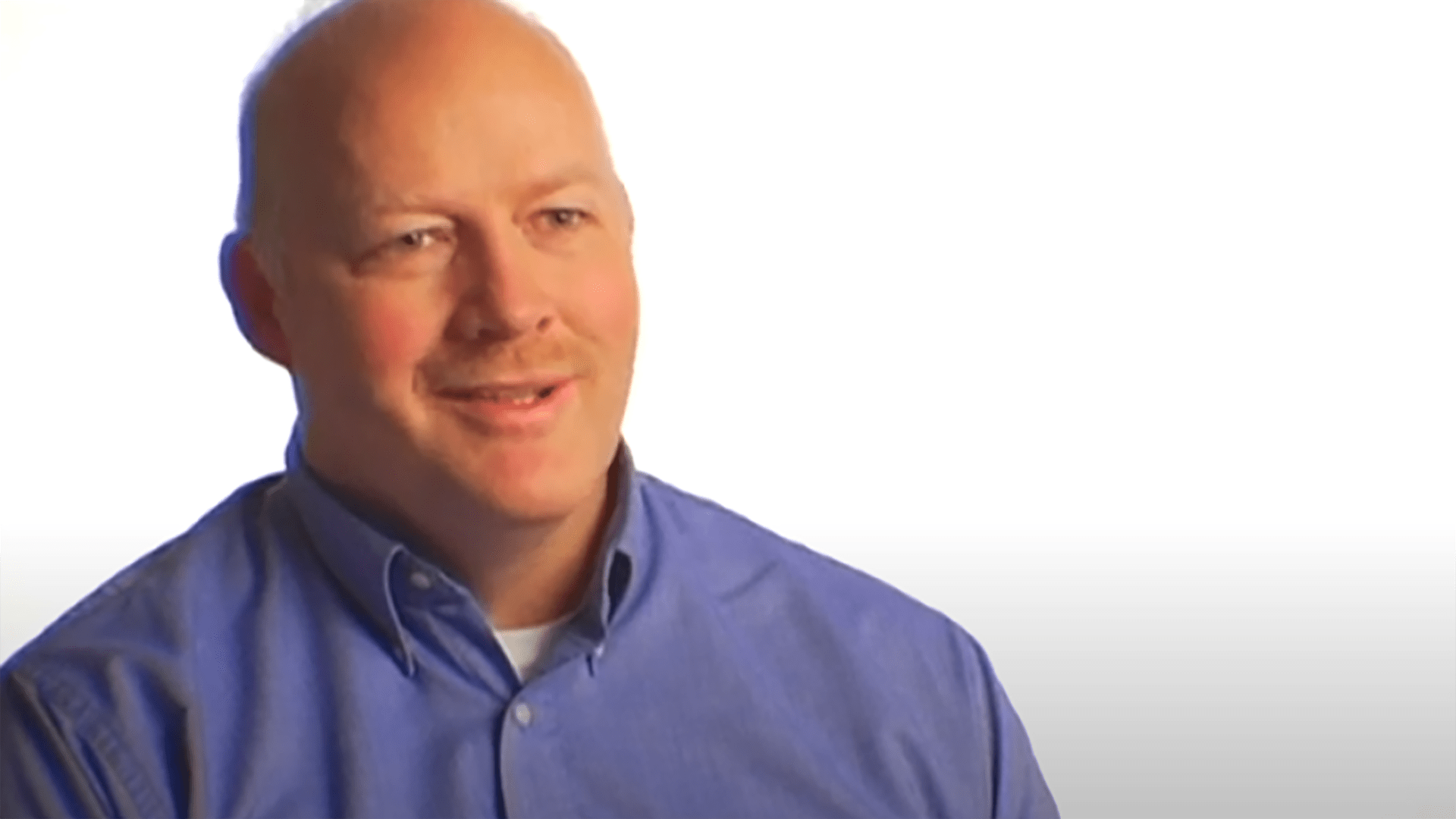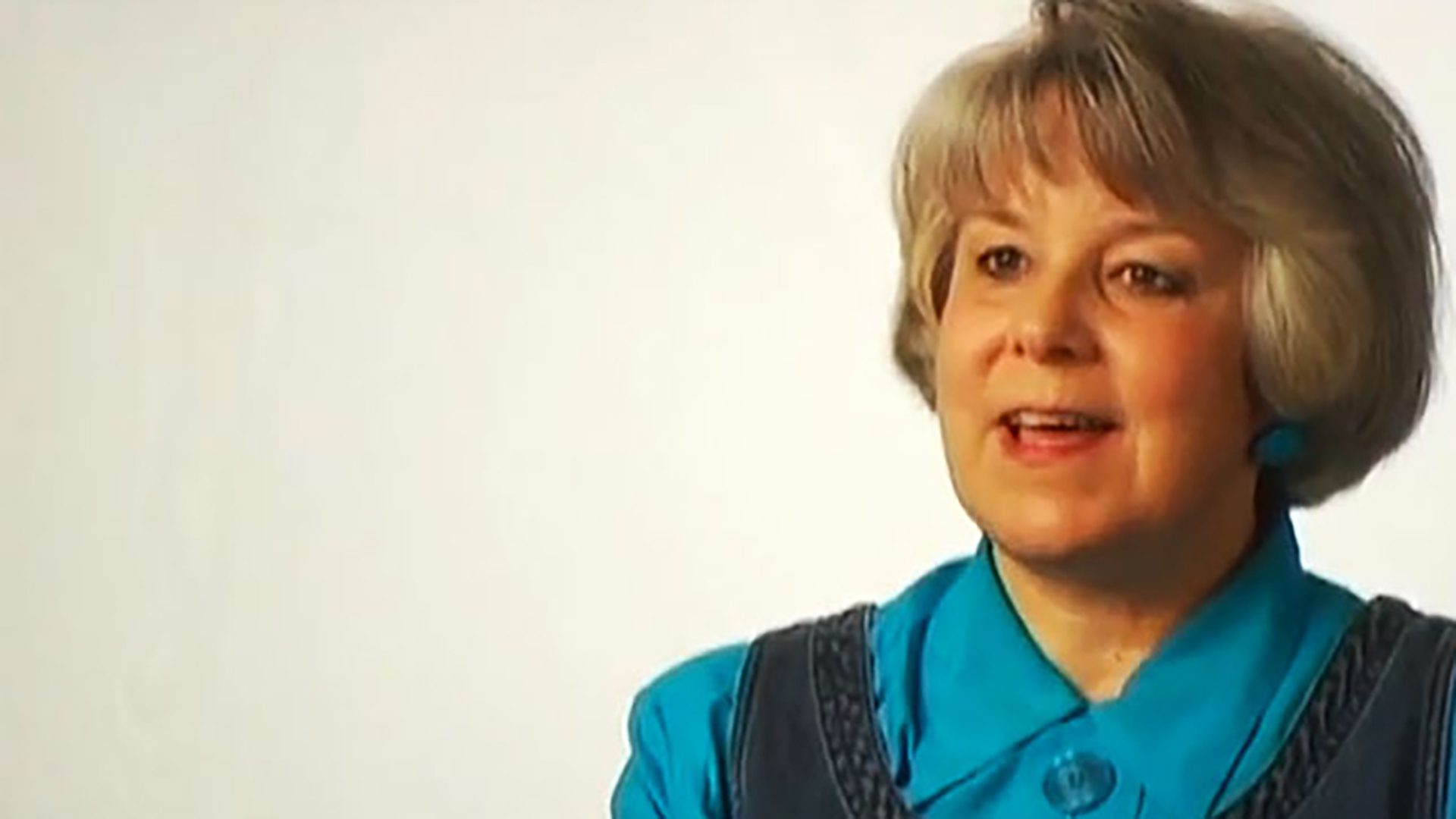Survivor Interview – Janet K
Janet is an ovarian cancer survivor. She talks about evaluating her symptoms, meeting other survivors, and dealing with employment discrimination.

I became a cancer survivor on October 29, 2002. I was diagnosed early, because I was persistent in saying that something was wrong. I felt as though something that was inside me that didn’t belong there. It felt like a Nerf ball. I went to the doctor at one point because I had a backache. It was excruciating, knee-buckling, to the ground pain. I had never had that before. And he told me because of my activity at the time that it was probably a torn ligament, so he treated it with pain pills and that didn’t help. Then all of a sudden the pain started to go away, but that’s when the belly started to pooch out. I thought, “No, that doesn’t sound right to ignore something like this.” I’d rather be a hypochondriac and have it checked out, and so I took myself to the doctor. I felt silly being there because I felt fine. I just felt as though something was in my belly that didn’t belong there, and that’s when they found it. So I’m glad I did that.
The first surgery, because I did a bikini cut, wasn’t a big deal for me. All I knew at that point in time is that I had named my tumor “Precious.” I just wanted Precious out. I was tired of dealing with it. It almost looked like I was pregnant, and that was very disturbing for me. So, I was ready for that surgery, although I had never had surgery before in my life. I went through that surgery and that was fine. And then I was offered a second surgery because they didn’t think it was cancer initially. They wanted to go back in and do the full debulking. And so when they went in the second time they did a vertical cut. So now I look like Godzilla down there. But it beats the alternative. And as far as body image now—it’s not pleasant. I mean it’s all discombobulated. I’ll never be able to wear a bikini, not that I ever would have, but it’s okay.
I know for women it’s difficult to lose your hair. It’s probably even more difficult to lose the eyebrows and the eyelashes. One thing I participated in was the American Cancer Society—Look Good, Feel Better. They teach you how to apply scarves and hats and wigs, where to go purchase the wigs, and that type of thing. They also teach you how to apply makeup, and they teach you where to point the eyebrow pencil so that you have eyebrows and you don’t look like Bette Davis. They teach you how to put eyeliner on so that you can simulate the appearance of eyelashes, because Lord knows your face looks so different without those definitions. Lipstick is another big feature. And I remember the first thing she taught us was to talk about applying under eye cover. Because with that chemotherapy, you can develop really dark circles. I remember one woman that was participating with us, she walked in with no makeup on, and as soon as she put that under eye cover on, she looked like she was coming back to life.
My doctor’s office has a buddy system and those people who sign up for the system them are matched with someone of like diagnosis and it’s someone who’s already gone through it. And the woman that they buddied me up with happens to be the Georgia division head of National Ovarian Cancer Council, so she found a warm body and she’s saying, “Can you do this? Can you do that?” and I’m doing a tremendous amount of work to help her. And the buddy system has been wonderful because thanks to email it takes a passive role and you can send a question to your buddy, and they in turn, in their time, can write a nice response and say, “You’re not alone in feeling this way,” or “do this” or “have you tried that?” It’s been a wonderful support because the doctors don’t always give you that kind of support. They speak to you in terms of the medical side of things and they don’t speak to you in terms of the emotional side, and that’s what the buddy system is there for.
Survivors can tell you when you have a nightmare— “Oh, I’ve had that too,” or if you’ve had a problem eating certain foods, they can tell you certain things to remedy and where to find those remedies at the grocery store or at a natural health food store to help you get through the ordeal. Go to the Web sites and try and find other survivors that have gone through situations that you have. If you can, find some kind of group that’s been developed for your cancer.
Every gurgle, every sensation I have in my stomach, I’ll wonder if it’s coming back, and that’s just something I have to live with, but I’m going to live with it. Part of what I’ve done is gone to this Chinese doctor to hopefully start to balance inside, I’m trying to get a more calm demeanor on the inside as well as on the outside, and I think through Chinese medicine and acupuncture that I’m achieving that.
A friend gave me a book that was written by Hamilton Jordan, and in that book he references other books to pick up and read, and I’ve picked those up and I read those. The common thread that I obtained from those books were that much of it is up in my head, and if I can control my thought process, I can also control my healing process. It’s not easy to do, but I try very hard to use my mind, the visualization. Some people have fighter jets in their system or an army in their system fighting the cancer. Anything like that is helpful when you’re going through it. You can empower yourself to realize that you’re alive, and you will get through this.
The hardest day I had was shortly after I was unemployed. There was one day when I just lost all control, all composure and cried for six hours non-stop. My attorney said, “This is all the money that they’ll offer, and you’re on your own with insurance and so on and so forth,” I cried for six hours endlessly. I had maybe two-minute intervals between each tear, but that was it. I think it was devastating to realize that, now what do I do? And I’m still in that point where, now what do I do? Who’s going to hire me because I have this imprint on my forehead that I’ve had cancer? For many people they think that once you’ve had it, you have it. I know that the insurance means dollars to them, and they will probably resist hiring me because they’re going to think that their insurance rates will go up because of me. And it’s just been horrible just dealing with that.
Now that I’m unemployed I’m on COBRA, which is an extension of my group health insurance policy through my previous employer, and that will last for 18 months. It’s out of my pocket, but at least I’m covered for the pre-existing condition. What happens thereafter, my insurance company has informed me that I can obtain a rider that will continue that coverage. Obviously, the premiums are going to escalate at that point in time, but at least my existing conditions should be covered.
This has changed my whole attitude towards money in itself in that you save for a rainy day. Well, it’s pouring down rain right now and I don’t know if I’ll ever see retirement now and I know we all need to plan for retirement, but at the same time I’m not going to worry about it now like I perhaps may have before. I feel that it will take care of itself. I have a passion now to give back to other people from my experience. So hopefully that’s going to take me on a new path. I don’t know where it’s going to go, but it’s what I’d like to do.
Cancer brought me back to life. I really feel as though I’m reborn with a new sense of life and a new sense of wanting to learn more. I was empowered to go learn more and find out more myself, and I think that kind of gave me life again. I met new people through all this. I have a whole new circle of friends now.
Survivorship to me is being a winner, being successful at overcoming this illness.
My name is Janet Kempe and I am a one-year cancer survivor.

